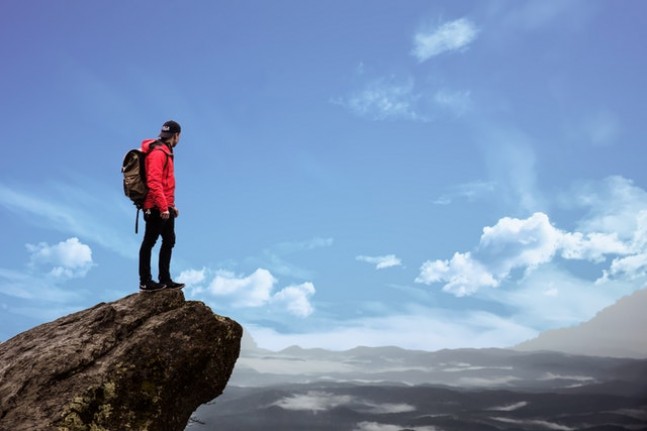Fuel Your Adventure!
Proper nutrition is important for everyone, but it’s particularly important when you’re setting off on a Global Adventure Challenge. These days, the ever-growing sports industry offers a huge amount of advice on what we should and shouldn’t eat to make the most of our exercises. For that reason, it’s easy to become confused about what we should and shouldn’t be eating (and drinking) before a long trek.
What you first need to understand is that all exercises make use of the energy we have stored in our bodies. Failing to replace these energy stores will mean, over time, our overall energy will decline, and it will become more difficult to perform to the best of our abilities. Energy is expressed in calories, and although every calorie will provide us with the same amount of energy, it is the way in which our bodies break down said calorie that differs. That’s why it’s important to know what types of foods make good fuel foods.
What do you need to fuel your trek?
Your body’s preferred energy source is carbohydrates. This is because it’s one of the easiest food types to convert into energy. The amount of carbohydrate we already have in our body is very small compared to the amount of fat we store so when the glycogen (carbohydrates stored in the muscles and liver) starts to deplete; we start to feel exhausted. Fortunately for hikers, this happens a lot quicker during high-intensity exercises.
Then comes protein, and although there is no solid evidence to prove that this will improve your performance, we do know that it keeps you fuller for longer! The types of food that you need will depend on factors like how long you’re walking for, the temperature, and how much weight you’ll be carrying.
The best foods for long hikes or cycles
Lean Meat and Fish
To get a solid dose of protein and minimise your risk of sore muscles, eat lean meats like chicken and turkey or fish. Vegetarians and vegans can swap this for tofu which will have a similar amount of protein.
Pasta
For mass amounts of carbohydrates load up on pasta before you set off. Add more nutrients with lean meats, fish or vegetables. Avoid pairing your pasta with creamy sauce as this will weigh down your stomach.
Peanut Butter
Nut butter such as peanut butter, almond butter or cashew butter contain a huge amount of fibre, protein and magnesium. These help build strength in your muscles and in your bones which are, understandably, extremely important on strenuous charity challenges.
Eggs
Not only are eggs a great source of protein but they’ve been proven to have a high satiety index than breakfast cereals so eating these in the morning will prevent you from wanting to snack all day.
Oats
Porridge is one of the best breakfasts you can eat, regardless of whether you’re setting off on a hike or not. This is because oats contain a huge amount of fibre and carbohydrates that will keep you consistently energised throughout the day.
What should you avoid?
Milk and Cheese
Cheese has a high-fat content meaning that it will digest slowly in your stomach and end up feeling like a brick that’s weighing you down. Similarly, milk can be extremely difficult to digest and can, therefore, cause discomfort in your stomach.
Chocolate
Chocolate might give you a quick sugar rush that will make you feel energised but it will cause your blood sugar to spike and, after that, your energy levels will come crashing down.
Spices
It’s true that spicy foods help to burn calories but eating them before your trek is a bad idea. They can cause heartburn and indigestion making your climb a very uncomfortable one indeed.
Fizzy Drinks and Fruit Juices
Fizzy drinks can cause bloating and a spike in blood sugar, neither of which are good conditions for hiking. Similarly, fruit juices contain a huge amount of sugar and could cause stomach upset if you’re not careful.
return to adventure journal






